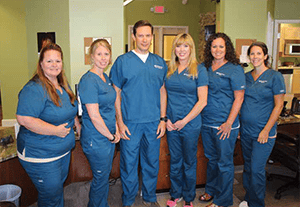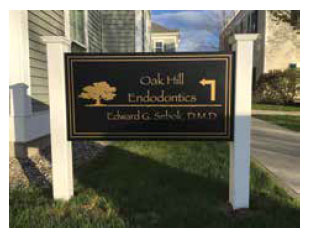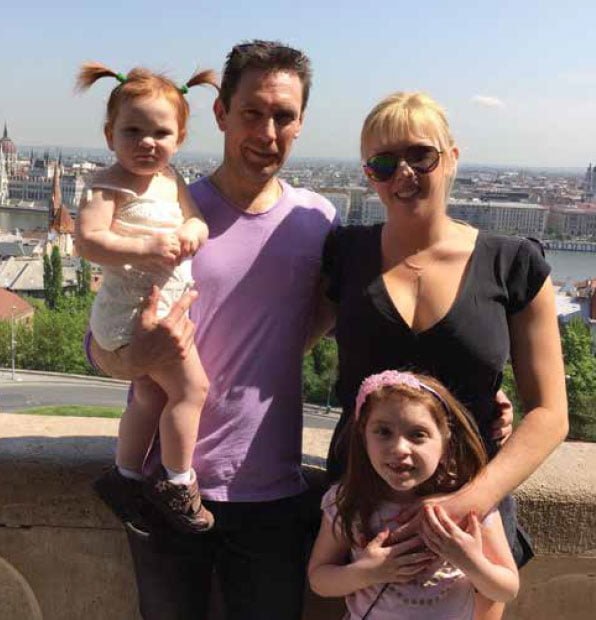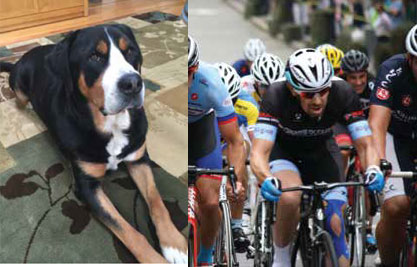
A focus on precision
What can you tell us about your background?
 I was born in Westchester County, New York. My father was Hungarian and worked as a technical glass blower. My mother is German and spoke very little Hungarian. As a result, I was brought up speaking English, German, and Hungarian fluently. To maintain my ability to speak all three languages, I attended a Hungarian boarding school in Germany. I then went to the Semmelweis University Faculty of Dentistry and became a dentist in Hungary before I decided to move back to the United States. To become an accredited dentist in the U.S., I had to obtain U.S. licensure, which entailed 2 additional years of dental school. I completed these years at the University of Pennsylvania School of Dental Medicine. At that point, I decided to pursue a career in endodontics and completed my specialty training at Penn. After obtaining all certifications, I moved to Portland, Maine and joined a group practice, which marked the beginning of my career as an endodontist. After 20 years of group practice, I decided to venture off on my own and have finally constructed the practice that I have always envisioned, Oak Hill Endodontics.
I was born in Westchester County, New York. My father was Hungarian and worked as a technical glass blower. My mother is German and spoke very little Hungarian. As a result, I was brought up speaking English, German, and Hungarian fluently. To maintain my ability to speak all three languages, I attended a Hungarian boarding school in Germany. I then went to the Semmelweis University Faculty of Dentistry and became a dentist in Hungary before I decided to move back to the United States. To become an accredited dentist in the U.S., I had to obtain U.S. licensure, which entailed 2 additional years of dental school. I completed these years at the University of Pennsylvania School of Dental Medicine. At that point, I decided to pursue a career in endodontics and completed my specialty training at Penn. After obtaining all certifications, I moved to Portland, Maine and joined a group practice, which marked the beginning of my career as an endodontist. After 20 years of group practice, I decided to venture off on my own and have finally constructed the practice that I have always envisioned, Oak Hill Endodontics.

When did you become a specialist and why?
I graduated from my endodontic program at the University of Pennsylvania in 1998. I decided to become an endodontist because I enjoy the precision work and attention to detail. I also find the rapid technological advancements to be exciting.
Is your practice limited solely to endodontics, or do you practice other types of dentistry?
Our practice is limited to conventional and surgical microscopic endodontics. We do not place implants.
Why did you decide to focus on endodontics?
I have always been a very detail-oriented person, so the precision of endodontics is right up my alley.

Do your patients come through referrals?
Yes, the vast majority of our patients are referred.
How long have you been practicing endodontics, and what systems do you use?
I have been practicing endodontics for 20 years. I perform all of my work under a surgical operating microscope. I clean and shape with nickel-titanium files. I perform warm vertical obturation and use digital radiography. Finally, I adopted the CBCT scanner and use it on an ever-increasing percentage of my patients.
What training have you undertaken?
 I graduated dental school for the first time in Budapest, Hungary, in 1990. When I moved back to the U.S., I completed another 2 years of dental school and 2 years of endodontic training at the University of Pennsylvania. My education was finally completed in 1998.
I graduated dental school for the first time in Budapest, Hungary, in 1990. When I moved back to the U.S., I completed another 2 years of dental school and 2 years of endodontic training at the University of Pennsylvania. My education was finally completed in 1998.
Who has inspired you?
I was mainly self-inspired; however, my father’s perfectionism was imbedded in my genes. This attention to detail has proven valuable in my career decision.
What is the most satisfying aspect of your practice?
I am now a solo practitioner, which has allowed me to dictate the pace and quality of my practice. I have also been fortunate enough to surround myself with a staff that I respect and treat like family, which has created a positive environment.

Professionally, what are you most proud of?
I am proud of the beautiful office that I have created and the positive feedback that we are receiving from patients, the community, and referring dentists.
What do you think is unique about your practice?
In fitting out our new office, the “Martha Stewart” really came out in me. I was able to create a calming environment to comfort our normally anxious patients.
What has been your biggest challenge?
After working in a group practice for 20 years, taking the step to go solo was daunting but has been very rewarding.
What would you have been if you didn’t become a dentist?
I would have been a professional athlete.
What is the future of endodontics and dentistry?
With the improvement of technology (in the right hands), we will provide better quality care and diagnoses, which in turn will lead to better prognoses.

What are your top tips for maintaining a successful specialty practice?
We all have cases that we would love to hide on the bottom of our portfolio. If you have not had any failures, you probably have not done many root canals in your career. The key is to learn from each case, follow up, and not brush it under the carpet. It is very important to be humble and know your limitations. It is also important to treat your patients and staff the way that you would like to be treated — with respect and appreciation. Regardless of how many years of experience you have, there is always something new to learn.
What advice would you give to budding endodontist?
Endodontics is a humbling practice. Continue learning, challenge yourself, and focus on precision. I also feel that it is important to keep the needs of the general dentist in mind, with the focus on properly restoring the endodontically treated tooth. You are only as good as your last case.

What are your hobbies, and what do you do in your spare time?
Outside of my practice and family, my main hobby is cycling. I am an avid racer, both locally and internationally, and an active member of the U.S. Cycling Federation. I have competed in sports for practically my entire life. Biking is therapeutic for me on many levels and is a part of my daily routine. With my European background, I travel overseas frequently to visit family and friends and to enjoy the culture. I also enjoy spending time with my wife, Amanda, and daughters, Gianna and Jasmin.
Practice details
- Four assistants who are cross-trained and can perform all tasks within the office
- One office manager
- Three operatories, two of which are equipped with ZEISS surgical operating microscopes and one room dedicated to the CBCT
- One dedicated sterilization room
- One large lunchroom that doubles as a conference room
- One doctor’s office
- One office manager’s office
- TDO Software used with DEXIS™ digital radiography
- Relaxing waiting room with Wi-Fi, television, and a beverage center
Stay Relevant With Endodontic Practice US
Join our email list for CE courses and webinars, articles and more..

